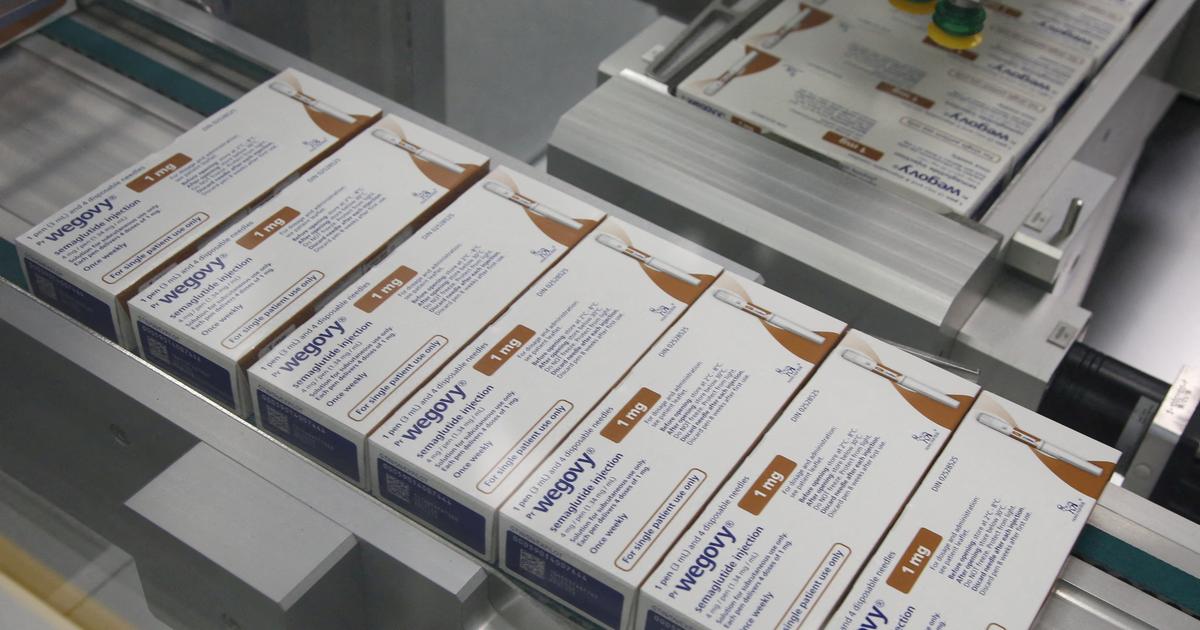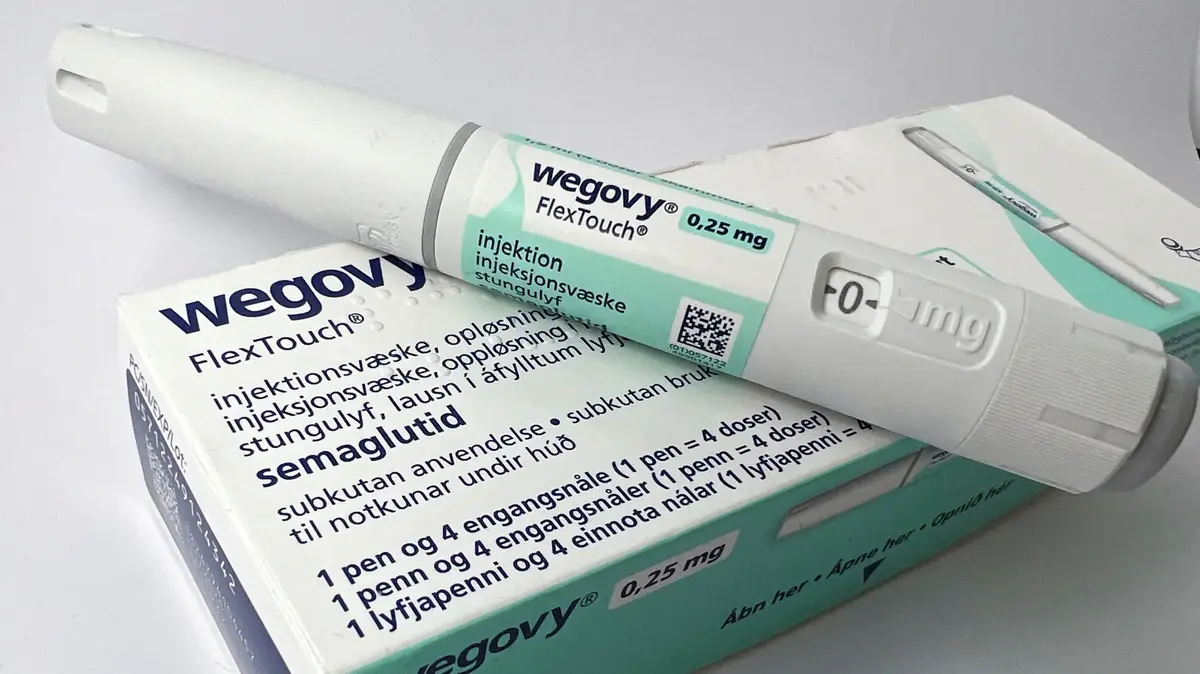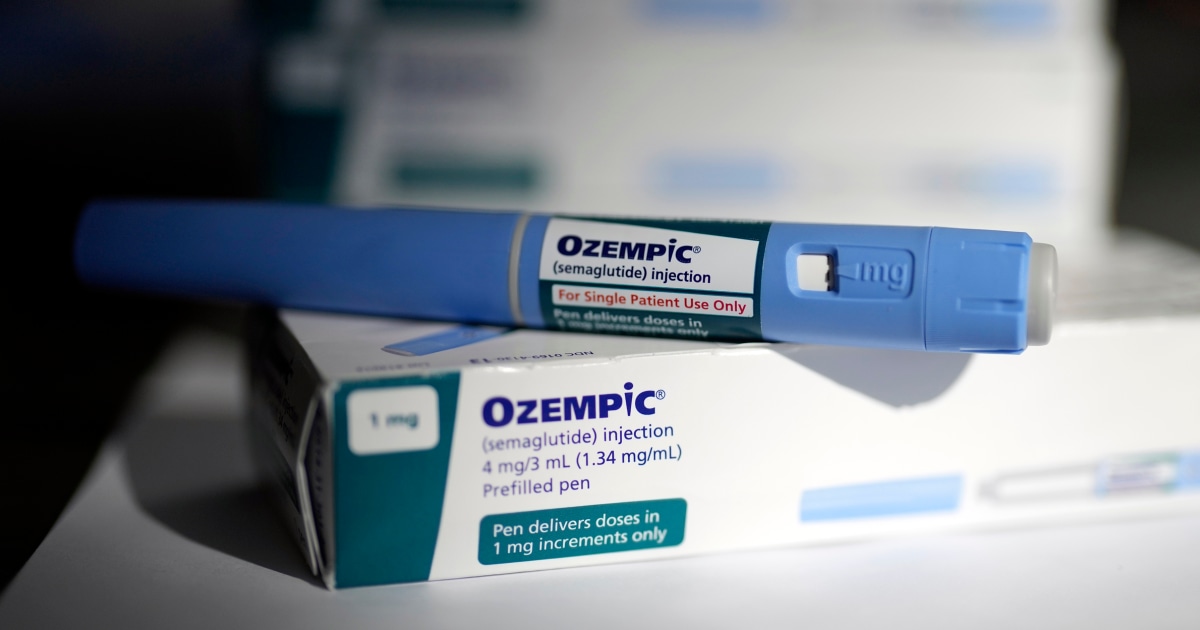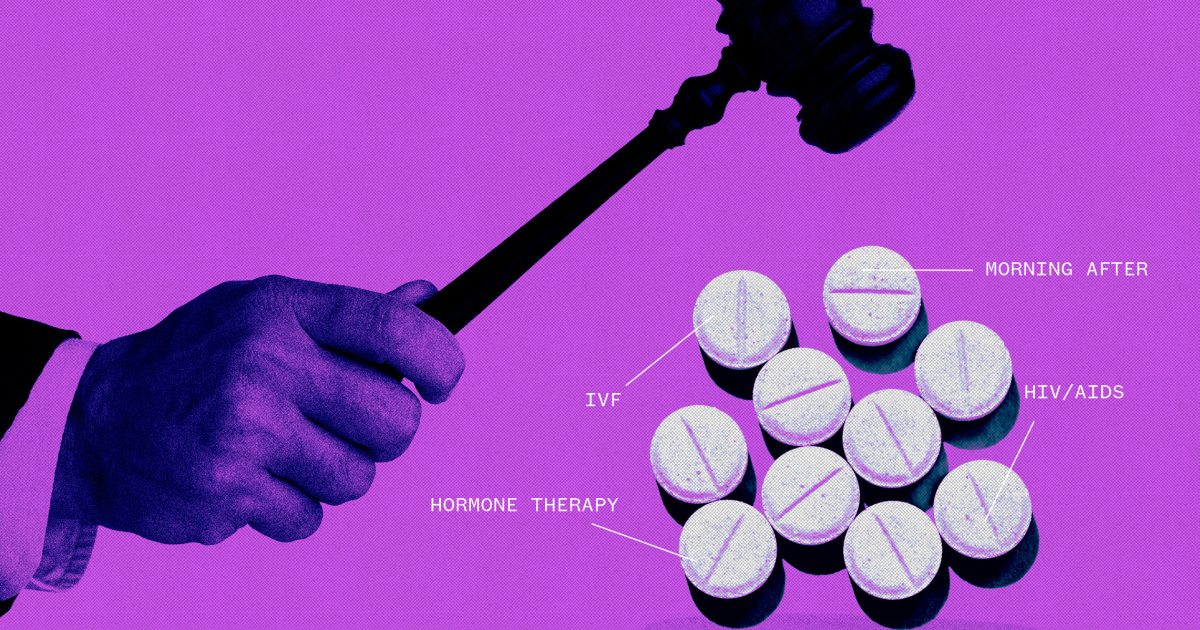By Berkeley Lovelace Jr. -
NBC News
If an Eli Lilly weight-loss drug is approved, it could become the best-seller of all time, but there are growing concerns about who can afford it.
Experts are confident that the drug, called tirzepatide, will receive approval from the Food and Drug Administration (FDA) sometime next year.
If so, it would join two other popular -- and expensive -- weight-loss drugs recently approved on the market, Wegovy and Saxenda, both from drugmaker Novo Nordisk.
[An Alaskan man misses his heart transplant surgery because a winter storm canceled his flight]
Annual sales of tirzepatide could reach a record $48 billion, according to an estimate by Geoff Meacham, an analyst at Bank of America.
Another Wall Street analyst, Colin Bristow of UBS, estimated the drug would reach $25 billion in annual sales, a number that would still top the record of $20.7 billion set by AbbVie's rheumatoid arthritis drug Humira in 2021.
Kelly Smith, a spokeswoman for Eli Lilly, declined to comment on how much tirzepatide will cost.
Outside experts said the drugmaker is likely to price similar to Wegovy, which lists for about $1,500 for a month's supply, and Saxenda, which costs about $1,350 for a month's supply.
Why are Latinos more prone to Alzheimer's?
A specialist answers
Dec 30, 202202:33
If the FDA confirms the drug's efficacy, the "fair" price for tirzepatide could be around $13,000 a year, or about $1,100 a month, according to Dr. David Rind, chief medical officer of the Institute for Clinical and Economic Review, a group of research that helps determine fair drug prices.
Clinical trials have shown that these drugs are very effective in losing weight.
All three drugs, which are given as injections, work in a similar way: They belong to a class of drugs called GLP-1 agonists, which mimic a hormone that helps reduce food intake and appetite.
[More women commit suicide when access to abortion is limited, study finds]
However, Eli Lilly's tirzepatide also mimics a second hormone, GIP, which, in addition to reducing appetite, can enhance the breakdown of sugars and fats.
In a phase 3 clinical trial, a high dose of tirzepatide was shown to help patients lose an average of 22.5% of their body weight, or about 52 pounds (15 kilos), better than any other drug on the market. present.
Most of the patients in the trial had a body mass index (BMI) equal to or greater than 30. In the trials, Wegovy and Saxenda reduced body weight by around 15% and 5%, respectively.
Does insurance cover weight loss drugs?
At lower doses, all three drugs are already approved to treat diabetes.
Tirzepatide is sold under the name Mounjaro for diabetes.
Semaglutide, when marketed for weight loss, is sold at a higher dosage and is called Wegovy;
at a lower dose, it is marketed for diabetes and sold as Ozempic.
Similarly, a higher dose of the drug liraglutide is sold under the name Saxenda for weight loss, and a lower dose is sold as Victoza for diabetes.
With the exception of Mounjaro, which was approved earlier this year, versions of the drugs used to treat diabetes are covered by most insurers.
This is not always the case when they are prescribed for obesity.
Obesity carries a special stigma, according to Dr. W. Scott Butsch, director of obesity medicine at the Cleveland Clinic's Metabolic and Bariatric Institute.
According to him, many doctors still consider it a behavioral problem rather than a medical one.
Take care of your spine!
Make sure you have good posture when using electronic devices
Dec 20, 202204:36
This belief, coupled with the ineffectiveness of older obesity drugs, has made insurers reluctant to cover many new therapies.
“They are biased,” Butsch says, adding that insurers ask for more evidence of the benefits of anti-obesity drugs than they normally would for other types of drugs.
[Do you know what serum therapy is and what its benefits are? An expert explains to us]
Some insurers can select one of the weight loss drugs and offer coverage, but often restrict access to only patients who meet a certain threshold, such as a BMI over 30.
Also, according to Butsch, not everyone responds in the same way to a certain slimming drug.
If the drug covered by insurance is not effective for that patient, there are usually no other drug options left.
Dr. Holly Lofton, director of NYU Langone Health's weight management program, regularly prescribes the new drugs to her patients, but many, she says, are denied coverage by their insurance.
“Patients tell me that it seems to them as if the insurance companies want to wait until they get so sick that they need a medication more,” she explained.
A study links the use of chemicals to straighten hair with an increased risk of uterine cancer
Oct 19, 202202:02
Lofton says some of his patients end up spending thousands of dollars out-of-pocket on the medication for a few months while they negotiate with their insurer for coverage.
Insurance typically doesn't reimburse patients for money they've already spent on drugs, she added.
Dr. Fatima Stanford, an obesity medicine specialist and director of equity in the endocrine division at Massachusetts General Hospital in Boston, said that private insurance coverage for obesity drugs is spotty, and that treatments often be restricted to the most expensive plans.
[This grandmother managed to lose 116 pounds of overweight. She can now carry her grandchildren on her lap]
Medicare does not cover them.
Anti-obesity drugs are not a mandatory Medicaid benefit, although some states have chosen to include them.
Obesity is considered a chronic disease and, like any other disease of this type, most patients are expected to take the medication for their entire lives, which is a great financial burden if they are forced to pay for it out of pocket.
The only people likely to be able to afford a drug like tirzepatide on its own will be the "very rich."
[Doctors want to weigh adult women to prevent disease. Why can it be harmful to them?]
Despite barriers to access, Bristow, an analyst at UBS, still expects tirzepatide to be a hit drug for obesity, noting that the US is already experiencing a supply shortage of the drug as a diabetes injection. .
“It is clear that the demand is very strong,” he said.
What needs to be changed?
Lofton, of NYU Langone Health, said insurance coverage for obesity drugs won't improve until more people in the medical field change their view of obesity.
It is not something that can be solved with diet, exercise or sheer willpower, but rather a deregulation of the body's fat cells.
Prejudices and stigmatization of obesity are rampant in the medical community.
[Online Weight Loss Companies Offer Access to New Drugs, But Do They Provide Good Medical Care?]
It is "evident in all health professionals, including doctors, nurses, dietitians and others," said Lisa Howley, an educational psychologist and director of strategic initiatives and partnerships for the Association of American Medical Schools. Medical Colleges).
This medicine to fight obesity in adults now works in adolescents, according to a study
Nov 3, 202201:51
A study published last year in the research journal Obesity revealed that health professionals hold implicit and/or explicit attitudes of prejudice towards obese people.
But changing the minds of the medical community - and, with it, the insurance companies - is extremely difficult.
According to Stanford, requiring insurance to cover obesity drugs may require legislative action.
In 2021, House lawmakers introduced the Treat and Reduce Obesity Act, which would have allowed the federal government to expand Medicare Part D coverage to include anti-obesity drugs.
The legislation had 154 bipartisan cosponsors, according to Congress.gov, but it was not voted on in the House of Representatives before the legislature ended.
America's Health Insurance Plans (AHIP), a trade group representing insurance companies, did not disclose whether it would support coverage of tirzepatide if the drug wins FDA approval next year or other anti-obesity drugs.
“Insurance providers routinely review the evidence for obesity medications and surgical treatments, offering patients many options, from lifestyle changes and nutritional counseling to surgical interventions and prescription drugs,” said David Allen. , AHIP spokesperson.
Butsch, of the Cleveland Clinic, said he hopes insurance companies will cover tirzepatide.
“We are seeing very effective drugs against obesity for the first time.
The benefit is real,” he noted.









